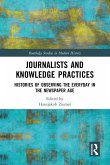Eva Hoffman probes these questions through personal reflections and through broader explorations of the historical, psychological and moral implications of the second-generation experience. She examines the subterranean processes through which private memories of suffering are transmitted, and the more wilful stratagems of collective memory. As she guides us through the poignant juncture at which living memory must be relinquished, she asks what insights can be carried from the past, and urges the need to transform potent family stories into a fully-informed understanding of a forbidding history.
Dieser Download kann aus rechtlichen Gründen nur mit Rechnungsadresse in A, B, BG, CY, CZ, D, DK, EW, E, FIN, F, GR, HR, H, IRL, I, LT, L, LR, M, NL, PL, P, R, S, SLO, SK ausgeliefert werden.









